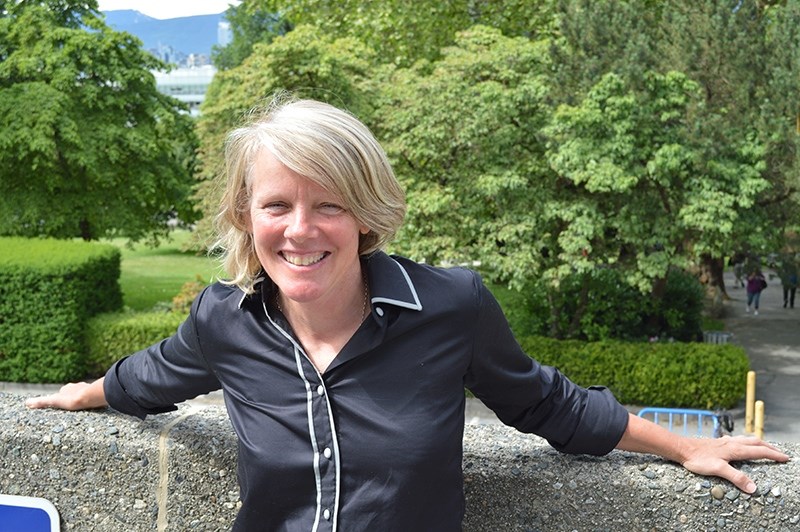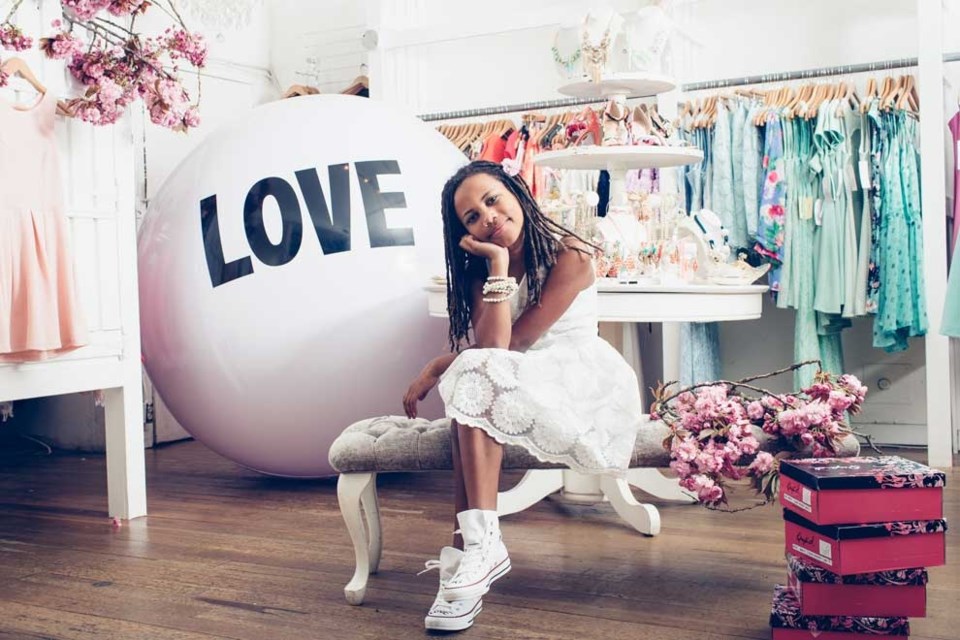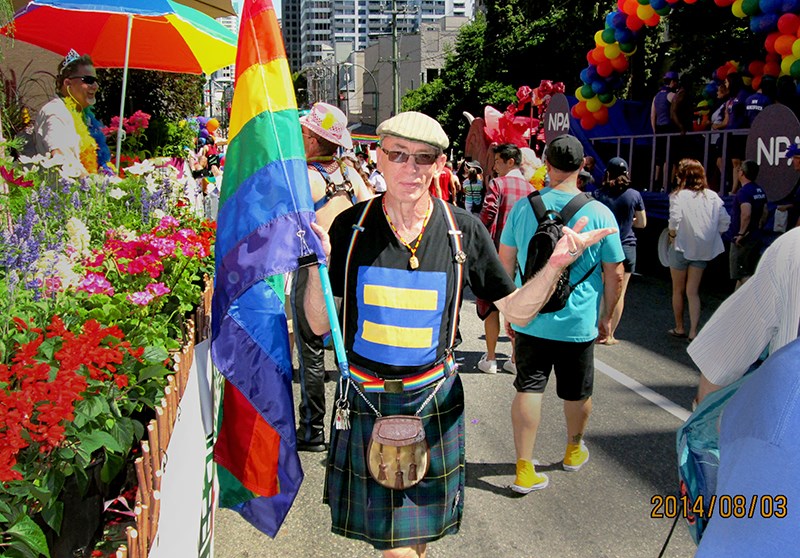This year, Pride will be poignant for Shawn Ewing.
Amid the celebratory atmosphere before the parade kicks off on Aug. 6, Ewing will be at the staging area with the ashes of his long-time friend, Fraser Doke.
Doke, a staunch gay rights activist who died on March 6 aged 54, was posthumously named as one of the parade’s grand marshals. His remains will travel in one of the parade-leading BMWs beside his brothers Grant and Patrick.
“He would be so humbled. For all the lives he touched, for all the good he did for so many people, he never fully realized how important and wonderful he was,” Ewing said in an emotional email.
“I know he knows that I will be there at staging and will see him off on this honoured ride.”
It’s an honour that, by all accounts, is richly deserved.
Doke was active – perhaps superactive is more correct – in the community, advocating for gay rights, social justice and equality. His resume is extraordinary.
As well as volunteering for Vancouver Pride, Surrey Pride, the Celtic Festival and the NDP, Doke sat on the board of Positive Living BC and the Vancouver Pride Society, and was a founding member of Gay & Grey, a discussion group for gay men approaching their retirement years.
He was a strong advocate for the McLaren Housing Society of BC, which provides safe, affordable housing and support for people living with HIV/AIDS, and, as a past chair of Raise the Rates, a coalition dedicated to improving social assistance, he fought for the rights of people like himself living on a fixed income due to illness or disability.
Doke battled HIV from an early age, having moved to Vancouver in his teenage years and living on the streets. He later suffered a brain abscess, then liver failure and ultimately liver cancer. Despite these challenges he was selfless in his daily life, his friends and acquaintances recall.
“He was always there when I called and needed some help on some volunteer project,” Ewing says.
“I almost thought his last name was ‘Couldyou,’ as it always seemed that it was ‘Fraser, could you...’ His response was often, ‘What time would you like me there?’”
Kim Stacey recalls Doke doing the cleaning and shopping for senior residents of the Manhattan co-op when they were both residents there. Now executive director of McLaren Housing, Stacey submitted the grand marshal nomination for Doke.
“He really wanted to educate people about the challenges of living on a fixed income and the struggles of having adequate food, particularly for HIV health, because having adequate housing and nutrition is key to having positive HIV health,” Stacey says.
This year, McLaren’s float at the Pride Parade will have a Scottish theme to honour Doke’s roots, complete with a piper and a picture of a kilt-wearing Doke from the 2014 parade – when he walked the whole route despite recovering from a liver transplant.
His influence goes far beyond people he met.
“If it wasn’t for the activism of people like Fraser, so many of us wouldn’t have the ability to walk down the street without some kind of abuse,” says Carrie Serwetnyk, another of the parade's grand marshals.

“We live in a freer society because of the work of people like him, who have opened doors, whether it’s in corporations or institutions or just in people’s minds, for someone like me to be freer in my life.”
Serwetnyk has earned many honours during her career as a soccer player and coach, including being the first woman inducted into the Canadian Soccer Hall of Fame in 2001.
But, just by talking to her over the phone, it’s apparent that the call to help lead out the Pride Parade is the honour that means the most.
“It’s absolutely huge,” she says after a long pause searching for the right words. “Being put in this position where I can be celebrated in my own community ... it’s kind of bigger than anything I’ve ever done.”
Serwetnyk is being recognized for her efforts to bring more gender balance to sports in Canada. Through her non-profit organization Equal Play, more than 3,000 elementary school girls in Vancouver have taken part in the free Equal Play girls leadership soccer project. She also founded the Free Kick leagues for kids in Vancouver, and has fearlessly advocated for more female representation in sports.
But on a more personal level, Serwetnyk admits she’s been more hesitant to openly identify as gay. Even when she learned of her nomination as a grand marshal, she didn’t feel like she was “out-out” – until a close friend told her that everyone already knew the truth.
Serwetnyk says she found courage in her other fellow grand marshal, Tru Wilson.

When Tru, now 14, was refused the right to attend school as a girl at Ladner's Sacred Heart Elementary in 2014, she and her family filed a human rights complaint. It led to the Catholic Independent Schools Vancouver Archdiocese becoming the first Catholic school board in Canada to develop a policy allowing students to be "gender non-conforming," although the actual process of transitioning is not supported.
Tru went on to become a powerful transgender advocate, becoming the poster girl for a Vancouver Parks Board awareness campaign, and being acknowledged by Prime Minister Justin Trudeau for her advocacy. Earlier this year, Options for Sexual Health named her as their first youth Sexual Health Champion.
When Serwetnyk read Tru’s story, she was inspired to fully own her sexuality.
“When I think about Tru, that she is loved and appreciated for who she is without being ostracized, it was a lesson. I realized, 'Oh no, I haven’t even told my own family that I’m going to be grand marshal!'” Serwetnyk says.
Serwetnyk immediately called her mother, who is in a nursing home, to deliver the news.
“I’m from the ‘before Ellen’ era when [being gay] wasn’t cool, it wasn’t normalized. And so I had to look at those feelings and say, this is your opportunity to grow and just be out and celebrate,” she says.
And though she’s nervous about the parade – “it sounds super scary but unbelievable in the same breath” – she’s going to embrace her starring role.
“I guess that’s what Pride is all about, for people to express themselves and be who they are.”



